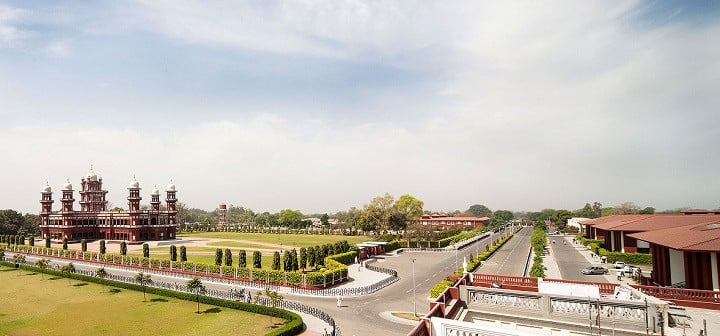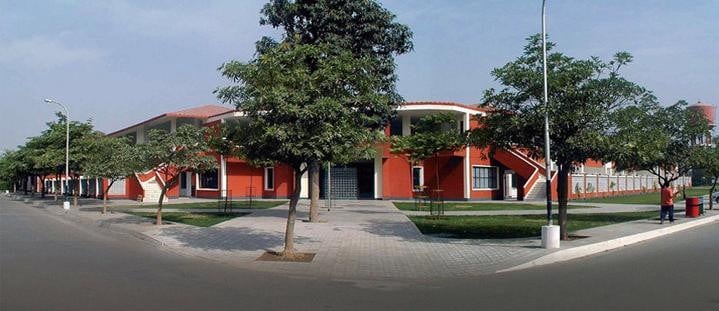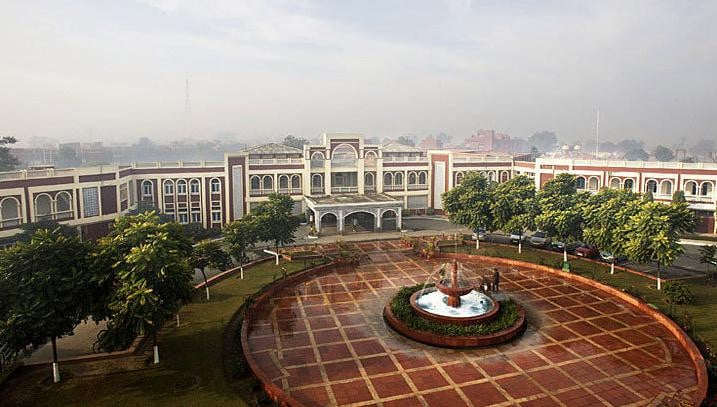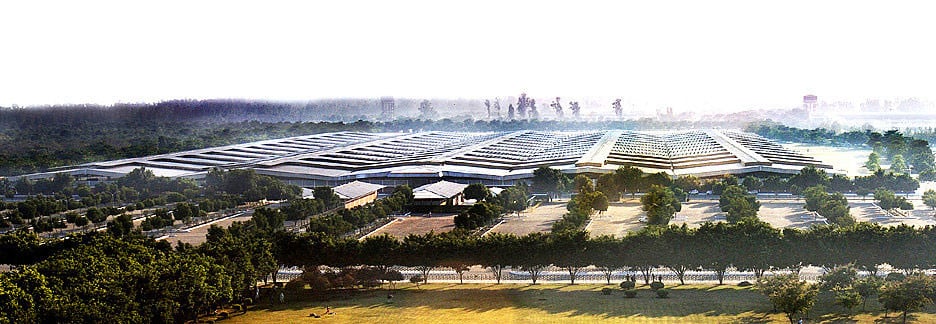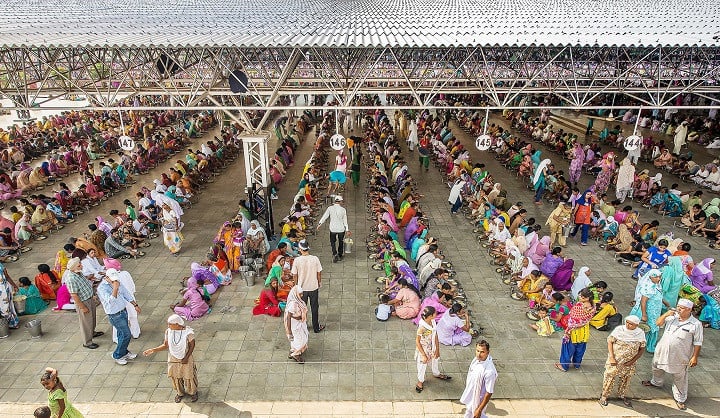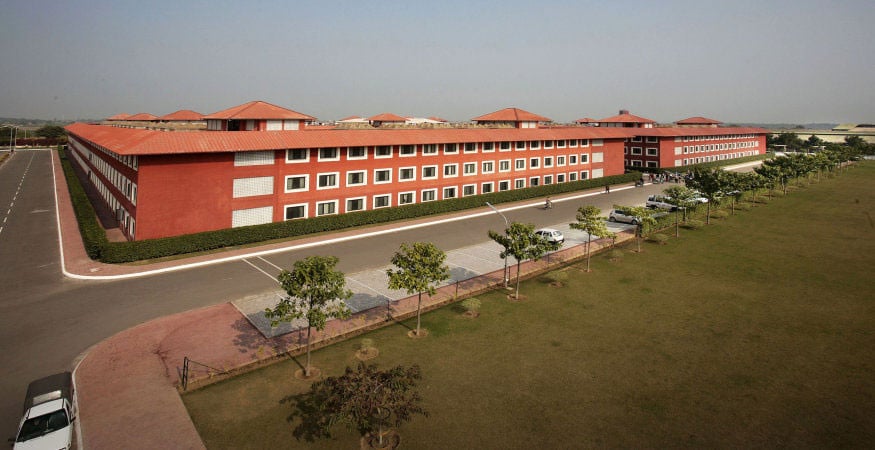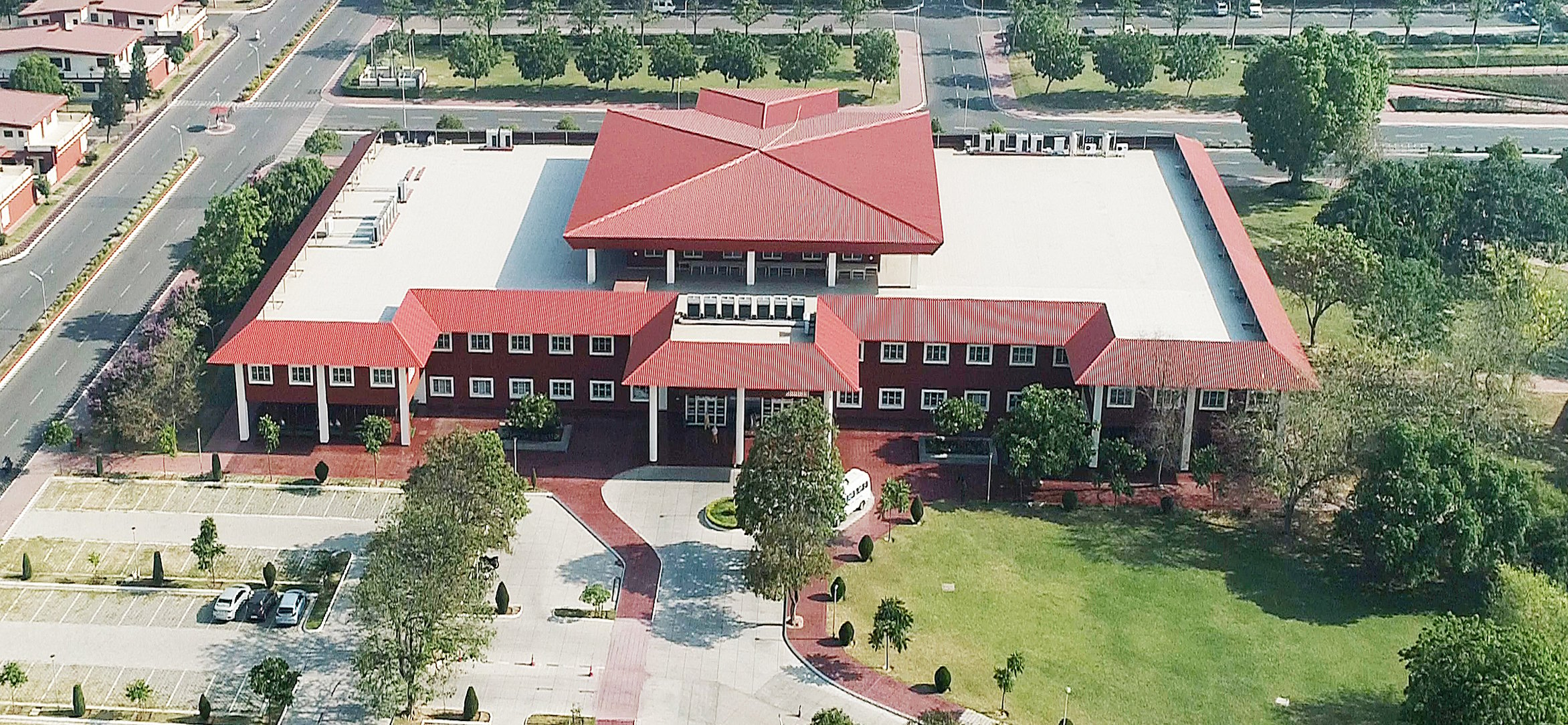Overview of Dera Baba Jaimal Singh
RSSB's headquarters is Dera Baba Jaimal Singh, named after its founder who settled there in the late 1800’s. Located in Punjab, India, the ‘Dera’ is a self-contained community with both administrative and residential facilities. Although the centres throughout the world are affiliated with RSSB India, each country's administration is autonomous, with a Board of Management that operates under a standard constitution modified to comply with local laws and conditions. Administration is handled entirely by volunteers, and operations are funded through unsolicited donations. The organization does not engage in any fundraising activities.
There are more than 5,000 RSSB centres throughout India, and internationally RSSB-affiliated organizations hold meetings in more than 90 countries. Meetings are held in rented halls, community centres or RSSB-owned properties. The purpose of these gatherings is to explain the RSSB philosophy. The meetings are non-denominational and open to the public. No fees are charged and there is no advertising or proselytizing.
RSSB has a publishing department that has produced more than 70 original titles on spirituality. Volunteers have translated a large selection of these books into 35 languages. A 20,000 square-metre library at the main centre in India will eventually house a collection of nearly 500,000 volumes concentrating on world religions, mysticism, philosophy and related subjects. The library will be open to scholars and researchers of all faiths.
In order to consolidate RSSB’s medical outreach and health initiatives, it has set up a sister organization, the Maharaj Jagat Singh Medical Relief Society, which operates three rural charitable hospitals: in Beas, Punjab; Sikanderpur, Haryana; and in Bhota, Himachal Pradesh. All three hospitals function as primary care facilities with fully functioning medical departments such as: ophthalmology, orthopaedics, gynaecology & obstetrics, ENT, surgery & anaesthesia, paediatrics, radiology, and dental. All medical services, including medicine and in-patient care are provided free of charge. The Beas Hospital is the largest hospital with 260 beds and treats on average 1,200 patients each day through its Outpatient Department (OPD). The Sikanderpur Hospital has 50 beds, the Bhota Hospital has 75 beds, and each treats about 450 patients each day through their Outpatient Departments. The large number of OPD patients is a reflection of the limited number of medical facilities in these rural farming communities. No distinction is made as to the background of the patients, either in regard to their economic status, social standing, or religious affiliation.
While the focus of the path is spiritual, centred on an internal meditation practice, at the same time members are encouraged to volunteer their free time in seva (service), voluntary service to others regardless of religion, caste or colour. In this context, RSSB has supported disaster relief efforts in a number of emergency situations, building multi-purpose community shelters and housing. These include the Gujarat earthquake of 2000, the Kashmir earthquake of 2005, Leh cloudbursts and landslides of 2010, and the Nepal earthquake of 2015.
The Main Centre
Dera Baba Jaimal Singh is a mini-township with 7,000 residents. Since the Dera is the home of the spiritual leader of the organization, large crowds visit on specially designated weekends to hear his discourses. These crowds average between 200,000 to 500,000 people depending on the season. The administration has become highly skilled in managing and providing facilities for large numbers of people on a short-term basis.
In order to provide a sheltered satsang venue for these gatherings, the Dera’s engineering department has constructed one of the largest covered structures in Asia, designed and fabricated on site using a lightweight space-frame technology. The roof provides a covered area where up to 500,000 people can be seated, and which can easily be expanded as the need arises. A computerized digital audio system was specially designed for the venue to provide the best possible sound for such a challenging environment.
Food
To feed the visitors three meals a day, several approaches are taken. The langar (a place where food is served free of charge) is the primary means. The free langar complex covers over 48 acres and operates around the clock. Capable of feeding up to 300,000 people per meal, 50,000 in a single sitting, it has a mostly volunteer staff who prepare and serve simple but nourishing food suitable to local tastes. As an example, the langar annually cooks more than 350,000 kilos of rice and uses more than 2.6 million kilos of wheat to make the traditional flat breads. Meals are also served at canteens and snack bars at a nominal price.
Accommodations
The colony is visited by people from around the world and all walks of life. To provide temporary accommodations for everyone, a variety of facilities are offered, all free of charge. There are a number of guest hostels with individual rooms and attached baths, hostels with dormitory-style rooms, and other large buildings to house visitors.
Medical
The Dera Hospital is located in the heart of Dera Baba Jaimal Singh. This facility serves the Dera residents and a large number of visitors who come to the Dera. During the designated satsang weekends, the hospital serves hundreds of patients daily. In addition, there are three First Aid Posts run by the hospital during busy periods. These First Aid Posts are located close to the large guest hostels.
The Community
The Dera seeks to be as self-sufficient and environmentally friendly as possible. Every year thousands of trees are planted. Many lawns and parks beautify the colony and provide space for visitors and residents to rest and relax. More than 1,250 acres of land are cultivated for growing vegetables and fruits that are used in the langar and by Dera residents. Organic farming methods are being adapted to local conditions. The Dera has its own water supply, water treatment plant and solid waste treatment facility. It has its own electrical sub-station and large electrical generator back-up facility to supply emergency power to the whole community. In addition, the Dera generates 19.5 megawatts (peak) electricity from photovoltaic (solar) panels mounted on the rooftops of eight large sheds.
The Pathseekers School is a recent project established for the benefit of the children of Dera residents and the staffs of the Dera and Beas hospitals. It currently serves 1026 students from preschool to senior secondary levels. The school is professionally run and equipped with up-to-date laboratories and computers, and offers a full range of arts, sports and academic programs. The students receive a well-rounded education – up to India’s Certified Board Education standard.
